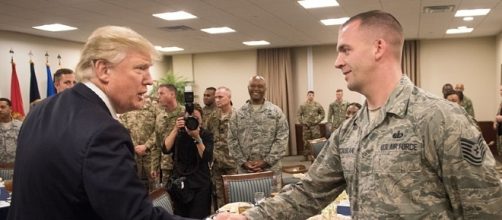One of the more pernicious (among many) practices of the Obama administration was its tendency to micromanage the military, down to the tactical level. The reason the previous president kept a short leash on his soldiers was that he neither liked nor trusted them, except when they could serve his political purposes, such as when the Navy SEALs executed Osama bin Laden. In any event, the United States Military is pleased to serve under President Donald Trump now. He knows how to delegate.
How a commander in chief handles matters of war
The United States Constitution designates the president of the United States and Commander In Chief of the military.
The principle of civilian control of the armed forces is considered sacred. The founding fathers did not want the military to have a role, except perhaps advisory, in setting policy. The armed forces are an instrument of foreign and national security policy, not a maker of it.
Various commanders in chief and how they did
Traditionally, presidents have set overall policy and have left it to the commanders to devise ways to execute it. The approach worked well from Abraham Lincoln (albeit not until Ulysses Grant became commanding general of the Union Army) and Franklin Roosevelt, who benefited with great commanders such as Marshall, Eisenhower, Nimitz, and MacArthur.
Modern communications technology has allowed more recent presidents to micromanage more than their predecessors were either able or inclined to.
Sometimes that arrangement was advantageous, such as when President Kennedy kept a tight grip on matters during the Cuban Missile Crisis. President Truman was also well within his rights to relieve MacArthur when he publicly chafed at White House policy that limited his response to the Chinese intervention in the Korean War. On the other hand, President Lyndon Johnson created a disaster in Vietnam with his meddling and unwise strategy. Obama has been the same in various conflicts on his watch, with the loss of blood as a result.
Trump has returned to the traditional role of a presidential commander in chief in that he sets policy, but the generals and other commanders in the field are the ones who carry it out.
The effects have been dramatic. ISIS has been ejected from Mosul in Iraq and bottled up in Raqqa in Syria. The terrorist army will, within the next few months, seek to be a force on the field with a territory to defend. ISIS will remain an underground group capable of mass casualty attacks. However, their caliphate will soon be on the ash heap of history. That will be Donald Trump’s singular first accomplishment that escaped Obama for the last five years of his presidency.


